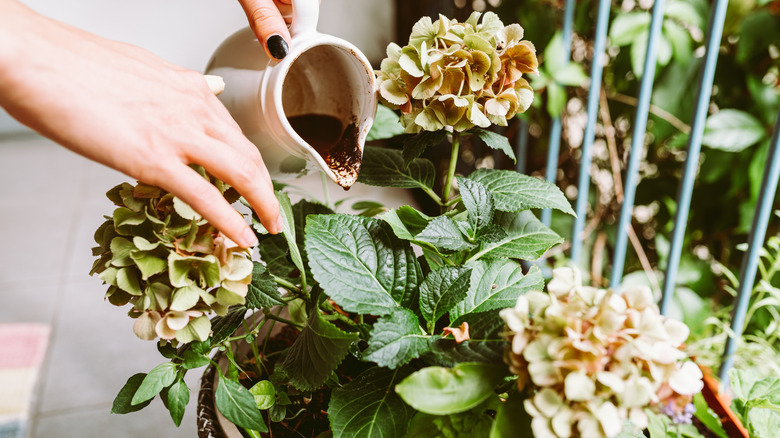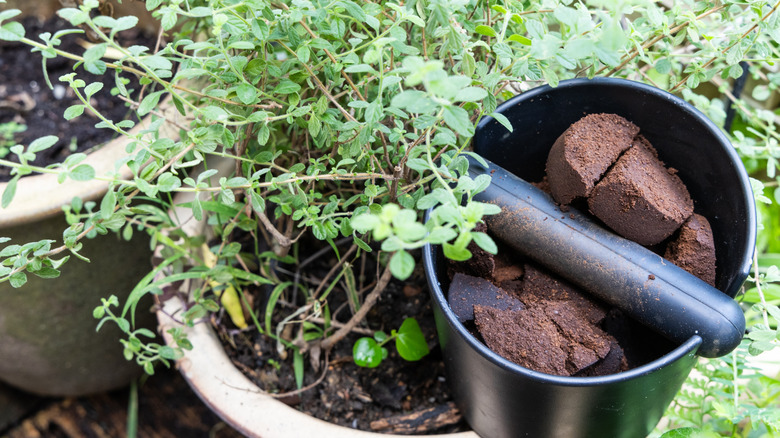Not All Plants Love Coffee: Here's What To Avoid In Your Garden
After brewing coffee, some gardeners take the used coffee grounds to upgrade their compost piles and gardens. Aside from giving us a jolt of energy via caffeine, the grounds are said to be a good source of nutrients to fertilize plants with. While there are tons of produce that benefit from the leftover coffee grounds, not everything in your garden is a fan of the common fertilizer.
Many people tend to add coffee grounds to their gardens for plants that prefer acidic soil, and although it's not exactly true that the grounds will help to decrease its pH level, sticking to plants that work well with acidic soil is a good place to start. Coffee grounds lose some of their acidity after brewing, giving them a pH level of around 6.5-6.8. This is best for plants that prefer a slightly acidic to neutral soil, like broccoli, radishes, lettuce, or homegrown tomatoes. However, this won't fare well for plants that like alkaline soil, or something above a pH level of 7.
Plenty of vegetables grow in mildly acidic or neutral soil, but crops like garlic, asparagus, leeks, and swiss chard do well in somewhat alkaline conditions, so it's best to keep coffee grounds away from them. The grounds may also not do too well in an herb or tea garden, with produce such as lavender, rosemary, sage, and oregano preferring soil that's more alkaline.
Keep these factors in mind before adding coffee grounds to your garden
Besides knowing the preferred pH level of the plants in your garden, there are other likes and dislikes to learn about them before feeding them coffee grounds. The grounds are nutrient-rich and a good source of nitrogen, which helps with plant growth. While it may not have enough nutrients to use alone, it's best to avoid using coffee grounds with crops that are nitrogen-sensitive, like root vegetables. The element tends to prioritize leaf growth rather than root growth, so you may end up with copious amounts of leaves sticking off the end of tiny carrots, potatoes, or beets.
Some herbs like the mild acidity of coffee grounds, but don't do well with higher amounts of nitrogen, either. Herbs that grow more slowly — like mint, tarragon, and sage — prefer lower nitrogen levels to help control their growth rate and keep their flavor intact. Instead, use coffee grounds for herbs with fast growth rates, like basil or chives.
When adding coffee grounds to your garden, dig up some of the soil surrounding the plants and mix the grounds into the dirt. If you're using the coffee as a slug or pest repellent, mix brewed coffee or the remaining grounds with water and spray it around the crops.

